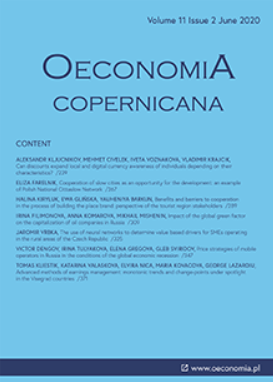The importance of evaluating inpatients’ satisfaction with emphasis on the aspect of confidence
The importance of evaluating inpatients’ satisfaction with emphasis on the aspect of confidence
Author(s): Beata Gavurova, Matus KUBAKSubject(s): Gender Studies, Health and medicine and law, Demography and human biology
Published by: Instytut Badań Gospodarczych
Keywords: inpatient satisfaction; quality of healthcare; confidence of inpatients; patient’s expectations;
Summary/Abstract: Research background: The patients’ confidence in physicians, as well as in healthcare personnel in general, is an important determinant of the patients’ satisfaction and their loyalty. The patients’ confidence as well as their overall satisfaction is influenced by many determinants, which are in a causal relation. Purpose of the article: The main aim of the study is to find out which socio-demographic factors influence the confidence of inpatients in physicians, nurses, other medical personnel, as well as in the treatment as such. The inpatients´ confidence is considered as an important dimension of the inpatients’ satisfaction. Methods: The questionnaire consists of 112 structured and semi-structured sur-vey questions. It was inspired by the HCAHPS survey. The questionnaire was distributed both on-line and in paper form in the Czech Republic. The dataset consists of 1,479 observations (899 females and 580 males). The descriptive statistics and binary logistic regression were used to process all data. Findings & value added: The research revealed significant differences in the confidence of inpatients in physicians in relation to the physicians’ communication styles regarding the inpatient’s gender. Males are more tolerant to the communication styles of physicians than women. There exists a relatively strong linear relationship between confidence in physicians, nurses, other healthcare professionals, and confidence in a treatment. Also, it was determined that in cases when a physician talks about an inpatient as if she/he is not there, the patient’s confidence in the medical personnel is reduced by 65%. Overall confidence in medical personnel is also gender biased i.e., in 87% of cases, women are more likely to have a higher confidence in medical personnel than men. The age of inpatients is not statistically significant and its impact on a confidence in medical personnel is neglectable.
Journal: Oeconomia Copernicana
- Issue Year: 12/2021
- Issue No: 3
- Page Range: 821-848
- Page Count: 28
- Language: English

